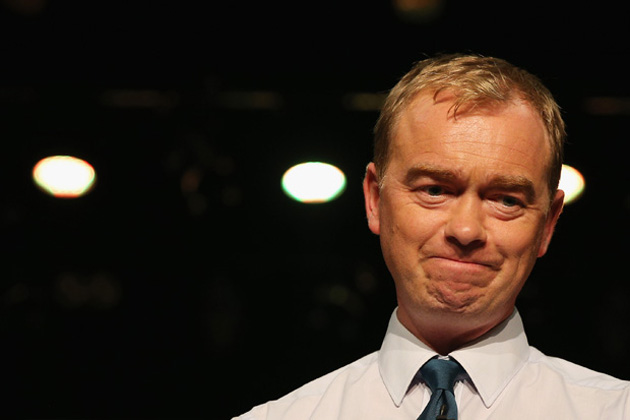Where faith in the public square is discussed in the United Kingdom, it is approached at best from the perspective of a social scientist doing research on an alien species. At worst, faith positions are attacked as dangerous departures from the neo-liberal consensus.
 Tim Farron, new leader of the Liberal Democratic party, has been attacked because of his Christian faith. / Getty
Tim Farron, new leader of the Liberal Democratic party, has been attacked because of his Christian faith. / Getty
“I think you should have every right to love who you love, marry who you wish. I believe and support equality under law, equal dignity and that includes people, whatever their sexuality. So, I’m a liberal to my fingertips.”
So said the leader of a mainstream British political party in a Sky News interview last week.
To be specific, the speaker was Tim Farron, and the statement isn’t an unusual one for someone in his position. Neither is it an unusual statement for a majority of the population to make. The fact is, these are mainstream, largely uncontroversial ideas in the UK today. This is a liberal statement, at a time of a liberal social consensus, by a liberal politician, who happens to be the leader of the Liberal Democrats.
In another interview however, Mr Farron’s position was attacked by Cathy Newman of Channel 4 News in a way that other interviewees holding the same view – like his predecessor Nick Clegg – would perhaps not be.
In the following days, Farron’s response has been critiqued, lambasted or conspicuously ignored in the mainstream Press – dependent upon the news outlet in question. In the Papers or on social media, the most common critique has been to accuse him – despite what he was saying and despite the obvious logical circuity – of a lack of Liberality in his views. It’s almost as if the critics haven’t actually listened to what Farron said.
Why is this?
Could it be because, unconventionally for our times, Tim Farron is also a Christian who has publicly and consistently professed his personal faith in Jesus Christ? In British politics – unlike the political culture of most countries globally – claiming a religious identity and talking about it is not an electoral advantage. This truth was best illustrated by Alistair Campbell’s famous disclaimer to journalists interested in Tony Blair’s faith that “we don’t do God”. The result is that, for at least the last 100 years, British politicians have been much more circumspect about playing the Christian card than in most other countries.
On the issues which Mr Farron was talking about – sexuality and individual liberty in respect of the law – parts of the mainstream media have a very frosty and confused relationship with Christianity. The media might be forgiven for thinking it knows what Christians believe about these issues: after all, there are plenty of Christians shouting loudly and bluntly about, for instance, homosexuality. And in today’s fast-paced news feed, those who shout loudest are often given the most space. But the truth is, there is no comprehensive Christian view of human sexuality or of public good versus individual liberties for all times and places. There are certainly orthodox Christian views on human sexuality, but they are not monolithic. And crucially, to be true to orthodox belief, the nuances, controversies and realities of the Christian approach to sexuality must always be subordinated to the law of Love – for God and for all people, regardless of their identity or beliefs.
But the discomfort in Britain about discussing faith from the inside – what it means to individual adherents, the reasons why it leads to certain beliefs or practices – is very common, and those in the media and politics are just as uncomfortable as anyone else, if not more so. Where faith in the public square is discussed, it’s approached at best from the perspective of a social scientist doing research on an alien species.
At worst, faith positions – let alone religious public reasoning – are attacked as dangerous departures from the neo-liberal consensus. They are heresies which must be identified and rooted-out, regardless of the believer’s commitment to tolerance, freedom of conscience, equal standing before the law or old-fashioned graciousness.
It must be said again that this is a strangely illiberal approach. So the question must be asked: when does Liberalism become Illiberalism? When do someone’s beliefs on any subject become threatening enough to become sacrilegious to the Liberal Ideal, even if that person is fundamentally committed to the Liberal Ideal?
In short, how should we live with our deepest differences?
Could it be the time to take the 20th Century conversation on liberalism forward into this new century? Is it time for a new way of doing pluralism that goes beyond Liberalism as we have come to know it?
In the Channel 4 interview, Mr Farron made the point that; “I am a member of a minority and it gives me all the more respect for those people who belong to other minorities.”
How we share our public space in a way that allows for a plurality of opposing views – even those which are in profound disagreement with one another – will be a great test for societies which would hope to be called tolerant, let alone Liberal.
Perhaps the words of Jesus can be instructive here: “Do not judge, or you too will be judged. For in the same way you judge others, you will be judged, and with the measure you use, it will be measured to you.”
David Smith is Head of International Programme at the Bible Society (UK). Expert in Peacemaking programmes. He tweets at @1davidwsmith

Las opiniones vertidas por nuestros colaboradores se realizan a nivel personal, pudiendo coincidir o no con la postura de la dirección de Protestante Digital.
Si quieres comentar o